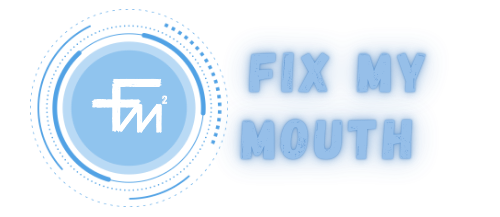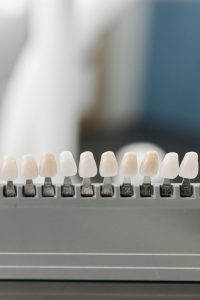Extreme tooth pain is more than just a minor inconvenience; it can significantly impact your quality of life, particularly when it prevents you from getting a good night’s sleep!
For many, “extreme tooth pain can’t sleep” is an all-too-familiar experience, causing not only physical discomfort but also emotional and mental stress. In this comprehensive guide, we will explore the causes, effects, and solutions for extreme tooth pain, ensuring you have the information needed to manage this condition effectively.
Table of Contents
Understanding Extreme Tooth Pain

What is Extreme Tooth Pain?
Extreme tooth pain is an intense, often throbbing discomfort that can be constant or intermittent. It can affect a single tooth, multiple teeth, or the surrounding gum area. This pain is usually a symptom of an underlying dental issue that needs immediate attention. Common symptoms accompanying extreme tooth pain include sensitivity to hot and cold, swelling, and a lingering ache.
Causes of Extreme Tooth Pain
1. Dental Cavities and Tooth Decay

One of the most common causes of extreme tooth pain is dental cavities. Cavities occur when plaque, a sticky film of bacteria, builds up on the teeth and produces acids that erode the tooth enamel. Once the enamel is compromised, the inner layers of the tooth, including the nerve, become exposed, leading to severe pain.
2. Gum Disease and Infections
Gum diseases, such as gingivitis and periodontitis, can cause significant tooth pain. Infections in the gums can lead to abscesses, which are pus-filled pockets caused by bacterial infections. These abscesses can cause intense pain that often radiates through the jaw and face.
3. Tooth Fractures and Cracks
Physical damage to the teeth, such as fractures or cracks, can expose the sensitive inner layers and cause extreme pain. These issues can result from trauma, biting down on hard objects, or even normal wear and tear over time.
4. Abscessed Tooth

An abscessed tooth is a severe infection at the root of a tooth or between the gum and a tooth. It typically results from untreated cavities, periodontal disease, or trauma. The pain from an abscessed tooth is often described as sharp, throbbing, and relentless.
5. Bruxism (Teeth Grinding)
Bruxism, or teeth grinding, can lead to extreme tooth pain, especially when it occurs frequently. Grinding can wear down the teeth, cause fractures, and strain the jaw muscles, all of which contribute to significant discomfort.
6. Dental Procedures

Recent dental work, such as fillings, crowns, or root canals, can sometimes result in temporary extreme tooth pain. This pain is usually due to the sensitivity of the affected tooth and should subside within a few days.
7. Impacted Teeth

During the late teen years, your wisdom teeth starts to come out. In only a few cases it erupts without causing any issues. In most cases, the wisdom tooth which is being erupted, is tilted.
This tilted tooth does not have space to erupt normally in the mouth. It then starts to come in contact with its neighboring tooth, or the bone. Such type of tooth is known as an impacted tooth.
Since this tooth contacts the neighboring tooth, it can cause problems to it, like initiating caries. This then leads to extreme tooth pain which can make you unable to sleep.
How Extreme Tooth Pain Affects Sleep
The Connection Between Tooth Pain and Sleep Disturbances
Extreme tooth pain can make it nearly impossible to fall asleep or stay asleep. The discomfort can be so overwhelming that it disrupts the normal sleep cycle, leading to insomnia and sleep deprivation. This is why many people find themselves searching for solutions to “extreme tooth pain can’t sleep” in the middle of the night.
Impact on Physical Health
1. Sleep Deprivation Effects
Chronic sleep deprivation due to tooth pain can have serious health consequences. It can weaken the immune system, increase the risk of cardiovascular disease, and lead to weight gain. Additionally, lack of sleep can impair cognitive function, making it difficult to concentrate and perform daily tasks.
2. Mental Health Implications
The inability to sleep because of extreme tooth pain can also take a toll on mental health. Prolonged sleep disturbances can lead to anxiety, depression, and heightened stress levels. The persistent pain can exacerbate these conditions, creating a vicious cycle of discomfort and emotional distress.
Immediate Relief for Extreme Tooth Pain
Over-the-Counter Pain Relief Options
1. Analgesics and Anti-inflammatory Drugs
Over-the-counter analgesics like acetaminophen and anti-inflammatory drugs such as ibuprofen can provide temporary relief from extreme tooth pain. These medications help reduce inflammation and numb the pain, making it easier to manage until you can see a dentist.
2. Topical Anesthetics
Topical anesthetics, available in gels or creams, can be applied directly to the affected tooth and gum area. Products containing benzocaine can provide temporary numbness, offering immediate, albeit short-lived, relief.
Home Remedies for Temporary Relief
1. Cold Compress

Applying a cold compress to the outside of your cheek near the painful area can help numb the pain and reduce swelling. Use a cold pack or a bag of frozen peas wrapped in a cloth, and apply it for 15-20 minutes at a time.
2. Saltwater Rinse
A saltwater rinse can help reduce inflammation and clean the affected area. Mix a teaspoon of salt in a glass of warm water and swish it around your mouth for about 30 seconds before spitting it out. Repeat this process several times a day.
3. Clove Oil

Clove oil has natural analgesic and antibacterial properties. Soak a cotton ball in clove oil and apply it directly to the painful tooth and gum area. This can provide temporary relief from extreme tooth pain.
4. Hydrogen Peroxide Rinse

A hydrogen peroxide rinse can help reduce pain and inflammation caused by an infection. Mix equal parts of hydrogen peroxide and water, swish the solution around your mouth for about 30 seconds, and then spit it out. Be sure not to swallow the solution.
Long-Term Solutions and Preventive Measures
Professional Dental Treatments
1. Root Canal Therapy
Root canal therapy is a common procedure used to treat extreme tooth pain caused by infections or damage to the tooth’s pulp. During the procedure, the infected or damaged pulp is removed, and the tooth is sealed to prevent further infection. This can provide long-term relief from pain.
2. Dental Fillings and Crowns

Dental fillings and crowns are used to repair cavities and restore damaged teeth. Fillings are used to fill small cavities, while crowns are used to cover and protect larger areas of damage. Both procedures can alleviate extreme tooth pain by addressing the underlying issues.
3. Tooth Extraction

In cases where the tooth is too damaged to be repaired, extraction may be necessary. Removing the problematic tooth can eliminate the source of pain and prevent further complications.
Preventive Measures to Avoid Extreme Tooth Pain
1. Regular Dental Check-ups
Routine dental check-ups are essential for maintaining oral health and preventing extreme tooth pain. Regular visits to the dentist can help identify and treat issues before they become severe.
2. Proper Oral Hygiene Practices
Maintaining good oral hygiene is crucial in preventing extreme tooth pain. Brush your teeth at least twice a day, floss daily, and use mouthwash to remove bacteria and plaque.
3. Dietary Considerations
Your diet plays a significant role in oral health. Avoid sugary foods and drinks that can contribute to cavities and tooth decay. Instead, focus on consuming a balanced diet rich in vitamins and minerals that support dental health.
4. Managing Bruxism
If you grind your teeth, it’s important to take steps to manage this condition. A dentist can provide a custom-made mouthguard to wear at night, which can protect your teeth from damage and reduce pain.
When to See a Dentist
Signs You Need Immediate Dental Attention
1. Persistent Pain
If you experience persistent extreme tooth pain that doesn’t subside with home remedies or over-the-counter medications, it’s crucial to see a dentist. This could be a sign of a serious underlying issue that requires professional treatment.
2. Swelling and Fever
Swelling, fever, and difficulty swallowing are signs of a severe infection that needs immediate attention. These symptoms indicate that the infection may be spreading and could potentially lead to more serious health issues.
3. Difficulty Eating and Drinking
If extreme tooth pain is making it difficult for you to eat or drink, it’s important to seek dental care. This not only affects your nutrition and hydration but also indicates a level of pain that requires professional intervention.
Conclusion
Extreme tooth pain is a debilitating condition that can significantly impact your ability to sleep and overall quality of life. By understanding the causes, effects, and available treatments, you can take proactive steps to manage this pain and prevent future occurrences. Remember, if you find yourself in a situation where “extreme tooth pain can’t sleep” is a nightly reality, it’s essential to seek professional dental care to address the root cause and restore your health and comfort.




